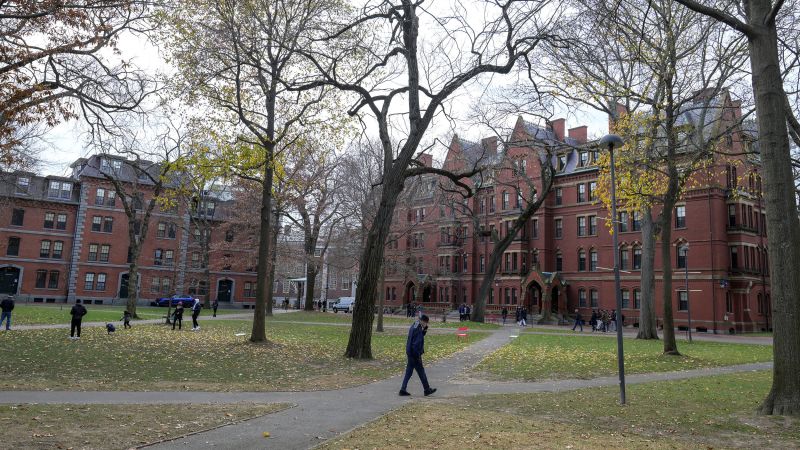Harvard University has announced a decrease in undergraduate applications for the class of 2028 to a four-year low. This decrease comes amidst historic turmoil, including a recent Supreme Court decision that gutted affirmative action. However, the total number of applicants, 54,008, is still the fourth highest in the school’s history. The acceptance rate also increased slightly to 3.58%, up from 3.41% the previous year.
Despite recent controversies and turmoil at Harvard, demand to attend the prestigious university has not significantly weakened. The school faced criticism last fall for its response to an anti-Israel letter, as well as accusations of antisemitism and Islamophobia. Claudine Gay, Harvard’s first Black president, resigned amid controversy over her academic writings and performance at a congressional hearing on antisemitism. However, the number of applicants has remained relatively stable.
Other Ivy League schools, such as Columbia University and the University of Pennsylvania, have experienced increases in applications. Columbia saw a 6% jump in applicants, while the University of Pennsylvania received the largest first-year applicant pool in its history. Despite controversies at these institutions, their applicant numbers have grown, indicating continued interest in attending Ivy League schools.
The University of Pennsylvania faced scrutiny after its former president, Liz Magill, struggled to answer questions about antisemitism during a congressional hearing. Cornell University and Brown University also admitted a significant number of students for the class of 2028, with Brown seeing a decrease in applicants compared to the previous year. These schools have maintained strong applicant pools despite recent controversies and scrutiny.
The class of 2028 marks the first admissions cycle after the US Supreme Court’s ruling on affirmative action in college admissions. This decision impacted Harvard and the University of North Carolina’s admissions programs, leading to changes in their processes. Harvard is also facing scrutiny from the House Education and Workforce Committee for issues related to campus antisemitism, with accusations of non-compliance with a subpoena for documents.
Early applications at Harvard fell to a four-year low, with an increase in the acceptance rate compared to the previous year. This drop occurred before Gay’s testimony before Congress on antisemitism and a plagiarism scandal. Despite these challenges, Harvard and other Ivy League schools continue to attract strong interest from applicants, maintaining their reputation as top-tier educational institutions.


